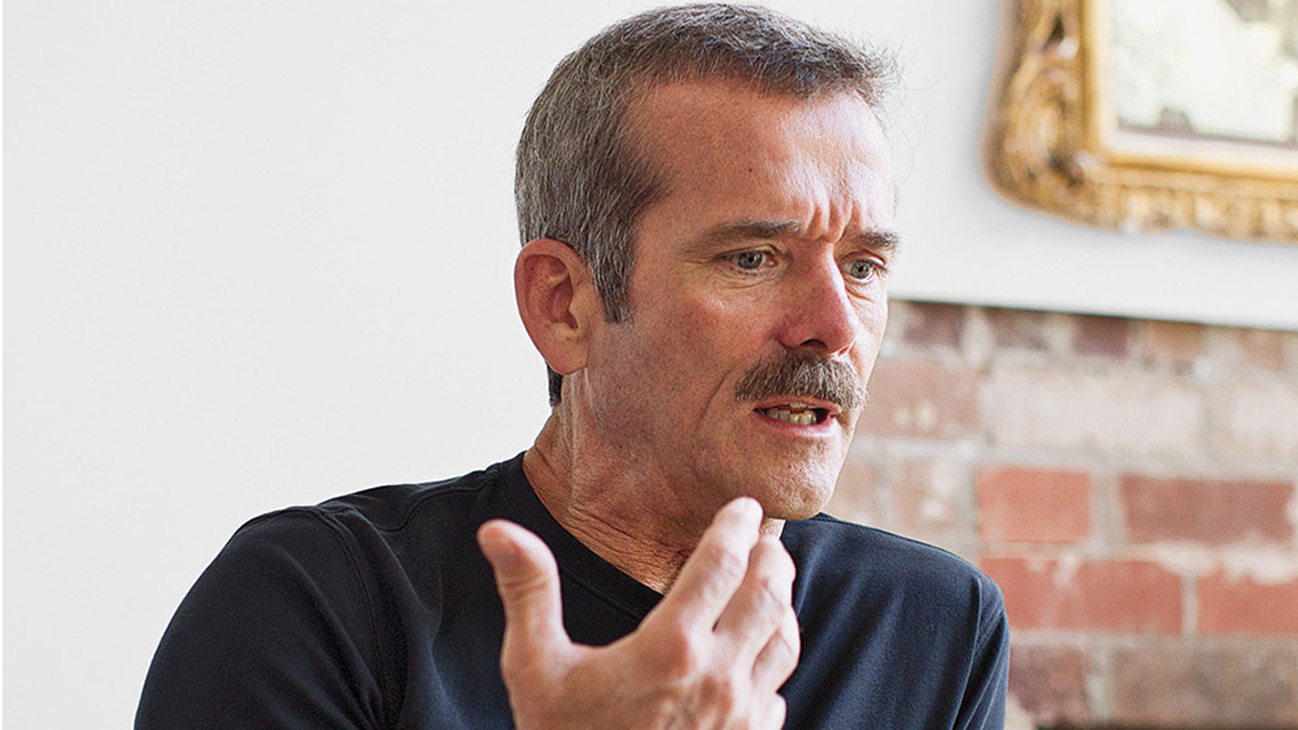Through his 21-years as an astronaut and three spaceflights, Colonel Chris Hadfield has become a worldwide sensation, harnessing the power of social media to make outer space accessible to millions and infusing a sense of wonder into our collective consciousness not felt since humanity first walked on the Moon. On a recent trip to China, Col. Hadfield echoed China’s wish for global collaboration, urging agencies like NASA to work together, reports The Guardian:
China’s space programme is “open for business”, the astronaut Chris Hadfield has said while calling for more international cooperation during a visit to Beijing to meet his Chinese counterparts.
“The US and China need symbolic ways to cooperate beyond panda bears and this is a really good way to do it,” he told the Guardian.
Astronauts from another nation training with China, or Chinese astronauts training at facilities such as Nasa’s at Houston, would be a positive and symbolic first step towards working together on a more lasting basis, Hadfield said.
The Canadian, who commanded the International Space Station (ISS) on his last mission before retirement, built up a huge following thanks to his tweets and rendition of David Bowie’s Space Oddity while in orbit.
He worked extensively with astronauts from other nations and spent two years as Nasa’s director of operations at Star City, Russia’s cosmonaut training centre.
Hadfield, who speaks fluent Russian, said it was important to ensure the next space station was an international effort. He cited the success of the ISS as “proof that enmity and suspicion could be overcome”. He added: “I’m looking at ways to cooperate – and I’m not alone.” Working together was not easy, he said, “ but it’s what we need to do, it just makes sense”.
Hadfield was in China with the Association of Space Explorers (ASE), whose members have all completed at least one space orbit of earth. It held its annual International Planetary Congress in Beijing in September and visited a Chinese space facility.
China is already working with Europe and Russia and is talking to other potential space partners. The UK has allotted £80m for joint missions with countries including India and China. On Wednesday India successfully put a satellite into orbit around Mars.
Under US law Nasa is prohibited from working with China’s space programme. But last year American scientists said they would boycott a Nasa conference after Chinese scientists were banned from attending; the agency later lifted the ban, saying it had misinterpreted legal restrictions.
Zhou Jianping, chief engineer of China’s manned space programme, said last year the country was willing to make space for other nations’ experiments and expected to see foreign astronauts aboard its space station, which was due to be completed around 2022.
Beijing used this month’s conference to push harder for collaboration. Yang Liwei, China’s first astronaut and now deputy head of China’s Manned Space Agency, said it had reserved some platforms in its station for other nations and had designed interfaces on its modules so they could dock with those of other countries. He said they were also keen to explore ties with regard to equipment design, astronaut training, and joint missions.
Soichi Noguchi, president of the ASE, told the Japanese newspaper Asahi Shimbun: “We will look forward to including China in the international framework of cooperation and are seeking an opportunity to start a dialogue.”
Hadfield added: “It has to be done cautiously. There have been vast amounts of national wealth invested in the technology that exists and people need to be protective of resources and their hard-won efforts.
“But the long-term goals are the same from country to country. The combined objective is trying to understand the rest of the universe. The common enemy is complexity and cost. And the example – we’ve done it on the ISS – is applicable when we go to the moon. There’s no rush. There’s no race. Those days have long since gone. This is an exploration.”
Space cooperation has meant not just overcoming cold war rivalry but the memory of enmity between other nations, such as Germany, Japan and the US, he said.
“It would have been very hard to predict in 1989 – and yet I was on the Russian space station by 1995 and commander of an international crew on the ISS by 2013. That’s amazingly quick. We have set an example that not only shows it is possible; it has been done. We have built it.
“We have a launch [on Thursday] of a Russian and American crew that has trained together for years, launching on a Russian vehicle, to go to an international space station. That’s hard to do in today’s climate.”
Nasa said in April it was suspending most dealings with Russia because of the crisis in Ukraine, but that the ISS would not be affected. The following month, Russia’s deputy prime minister said a US request to prolong use of the ISS beyond 2020 would be rejected.
China is only the third nation to launch astronauts into space in its own vehicles. The US can no longer do so, but Nasa announced this month that it had selected Boeing and SpaceX to transport astronauts to the ISS.

